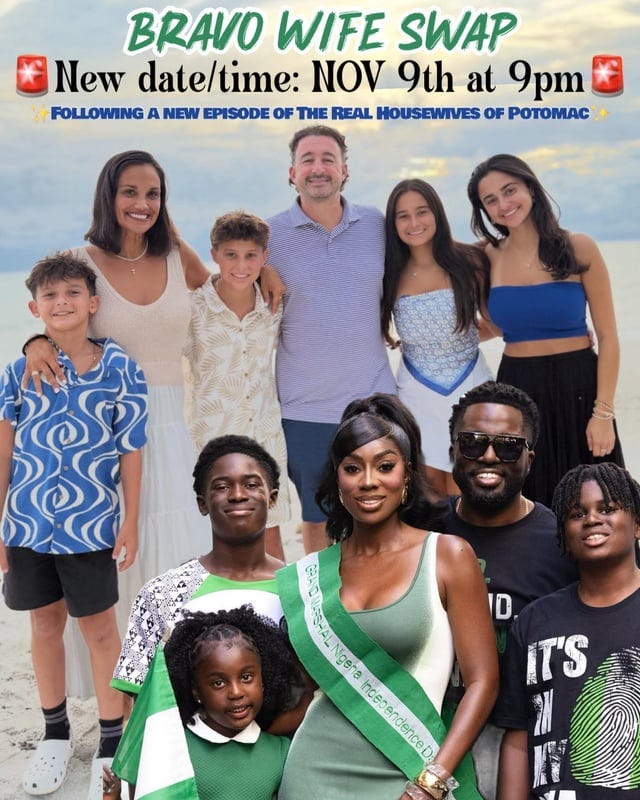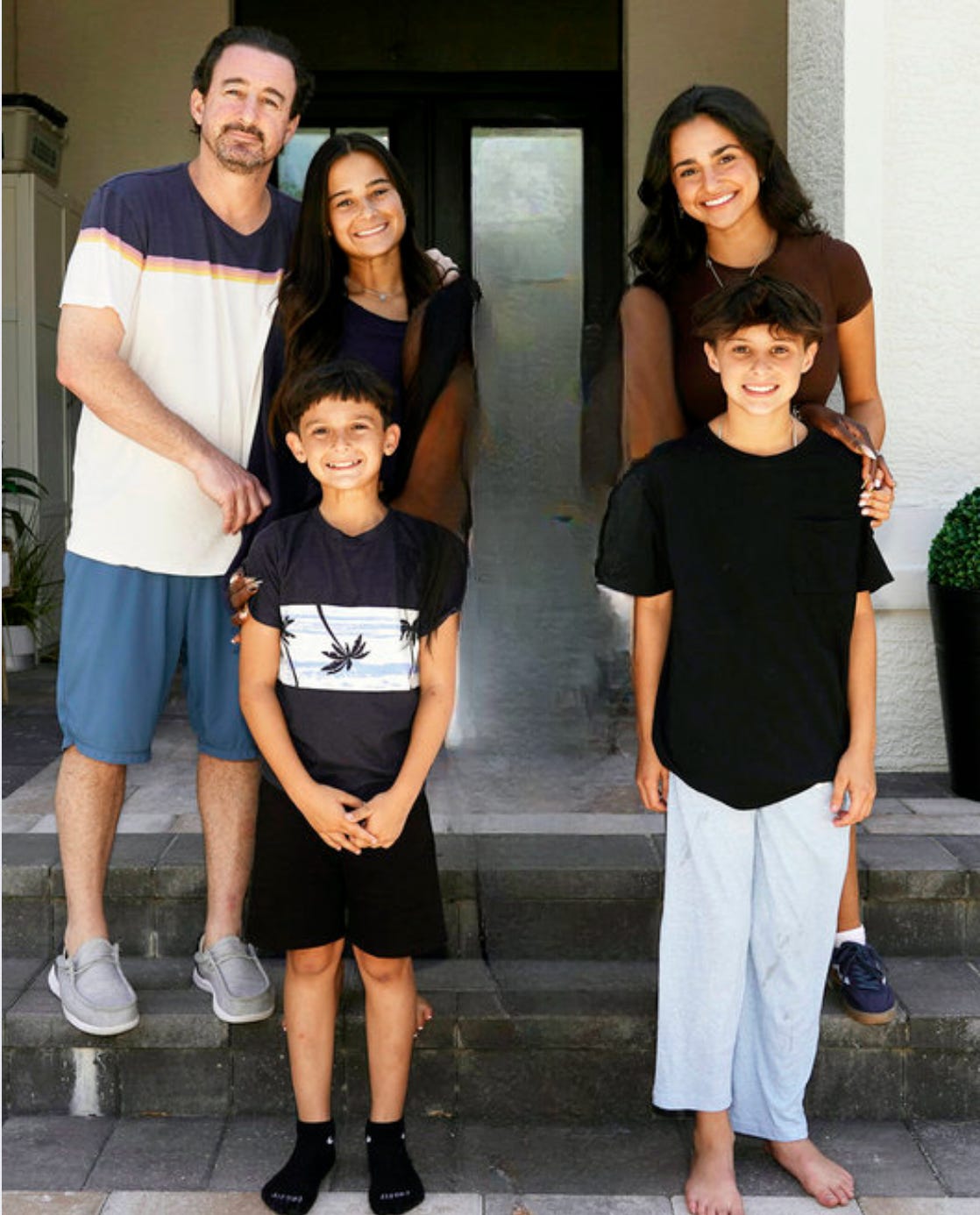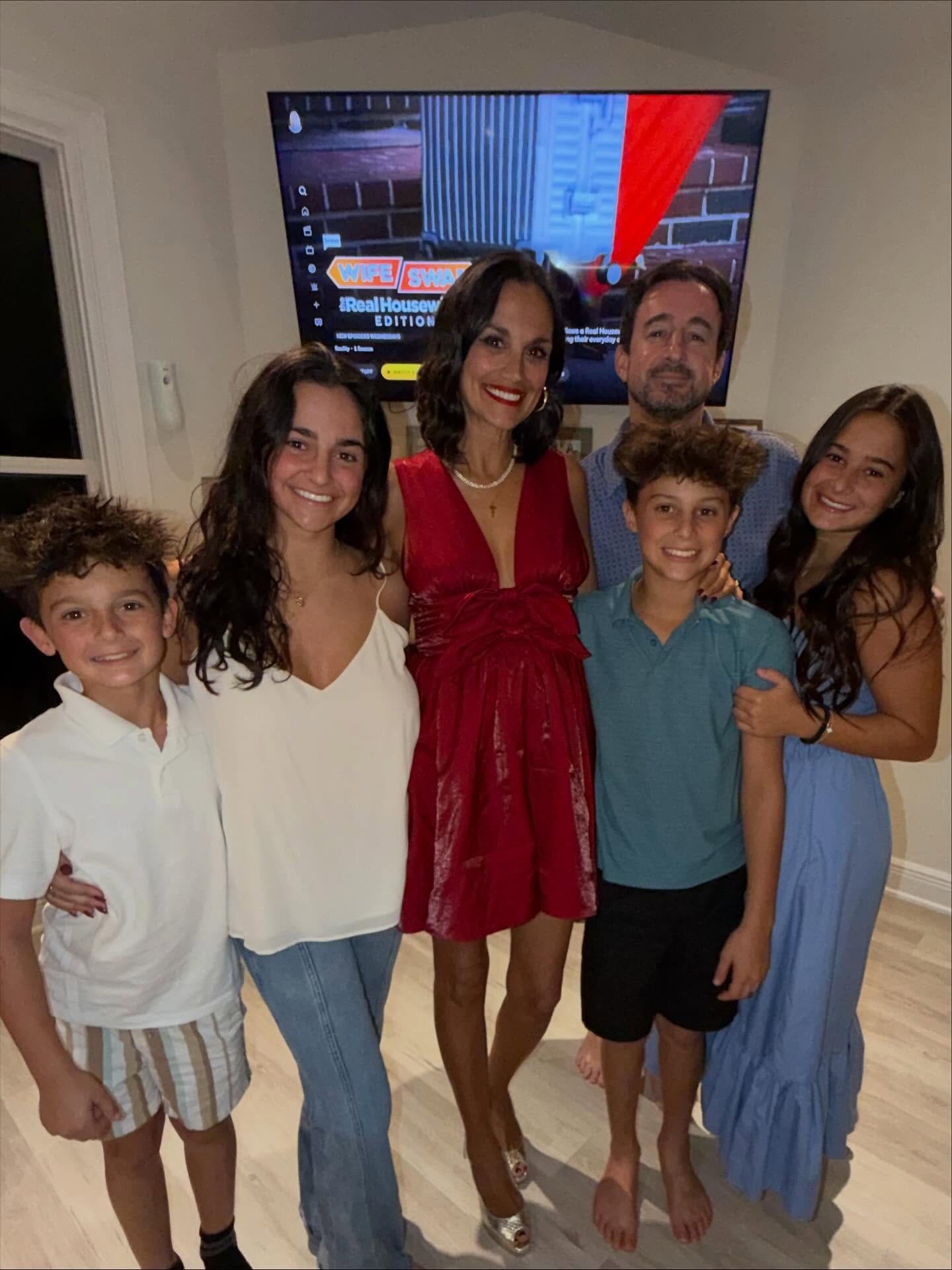Request for Review: Erasure of Autism/ADHD Disclosure
Bravo TV did Autistic Culture Podcast Guest, Alethea Shapiro Dirty by COMPLETELY erasing her disability and reframing her AuDHD as laziness. We cannot let this stand. Please join me and speak up.
I’m so mad this morning. If you’ve been following Autistic Culture for a while, you know this project is about going beyond “autism awareness.” Our whole premise is that Autistic people have a distinct and credible culture: our own norms, ethics, humor, aesthetics, and survival strategies in a world that wasn’t built with us in mind.
Which is why I want to talk about a Bravo show that an Autistic Culture podcast guest, Alethea Shapiro, was featured on this week.
I love Autistic representation in the media and I know it’s why Alethea agreed to share her late diagnosis story on Wife Swap: The Real Housewives Edition. The episode she and her family were featured on was titled All is Ferret in Love and War and in the recording disclosed her AuDHD status MULTIPLE times in the filming and in the auditioning. She explained her use of low-demand parenting, a disability-informed approach rooted in neurodivergent life.
Then, in the edit, Bravo erased all of that. The truth of WHO Alethea is was ERASED from her own story.
What aired was a familiar story: Bravo introduces Alethea as a “free spirited Floridian” who “prioritizes fun, independence, absolutely no rules and… ferrets,” then drops her into a classic Bravo contrast experiment with Dr Wendy Osefo, a high achieving academic with a tightly run Maryland household. On screen, it is “strict rules and schedules” versus “low demand chaos.” On Reddit and Instagram, the commentary follows the script: she is lazy, she “does fuckall for her family,” she had a “psychotic break,” she had kids but “doesn’t feel like mothering,” her daughter has been turned into a third parent, the husband is a martyr.
I am sure they did this to Alethea because it makes great television.
It also makes terrible disability representation.
This is what ableism looks like and it’s so painful to watch Alethea go through this media attack.
What the episode does not tell you is that Alethea is Autistic and ADHD. That she went through years of unrelenting pressure and trauma, hit Autistic burnout so severe it dismantled her life, and then deliberately rebuilt that life around a disability informed, low demand framework. The show filmed that part. She disclosed it throughout a year long process. It was simply edited out.
If you know anything about how Autistic and ADHD people are treated in this culture, the choice is familiar.
What you saw, and what you were not allowed to see
On screen, we see a cluster of things that reality TV can easily frame as punchlines.
We see kids up late. We see paint in the living room on a white rug. We see pets with dedicated space while Craig works out of the laundry room. We see a ferret in a papoose, which is admittedly delightful, and which Reddit instantly reads as a woman who only liked the baby stage of parenting because “babies idolize you and cannot call you out.”
We see an eldest daughter described as “like a second mom,” a child who is calm, articulate, and heartbreakingly mature. Viewers recognize parentification right away and they are not wrong to worry about that. Some commenters show real empathy for her and for the younger kids. Others jump straight to “your job is not done, queen,” and “why have four kids if it is too much for you.”
Now overlay the missing Autistic Culture information.
Alethea did not simply wake up one day and decide to set bedtime on fire for the vibes. In her own account, the years before the move to Florida were a perfect storm: intense volunteer activism and political organizing, a toxic environment with multiple family medical emergencies, several failed IVF attempts and miscarriages, and the physical and emotional fallout of Hurricane Ian. By 2022, Alethea was not just “tired.” She was in full Autistic burnout, the kind that drops you into a brick wall.
Like many of us who are late identified, she first thought it was “just” depression and anxiety. The autism and ADHD explanation came later, almost sideways, helped along by Taylor Swift’s Eras Tour, the Taylor is Autistic episode of the Autistic Culture podcast, and a queer corner of the fandom that made her feel seen for the first time. That is when she started asking different questions: What if I am not broken? What if my brain is different? What if I need to build a life that fits my actual capacity instead of the one I was trained to perform?
That is the context Bravo cut.
Low demand parenting is not “no rules” chaos
The other missing piece is low demand parenting itself. On the show, it is reduced to a funny phrase that can be flattened into “no rules.” In reality, low demand parenting is a disability informed framework that grew out of Autistic and PDA communities. It is designed for mixed neurotype families where at least some people have limited capacity for constant demands. And btw, it would be extremely unlikely that Alethea is the only neurodivergent person in her family of 6, so this structure would clearly benefit the entire family unit not just her.
Low demand does not mean no structure. It means removing nonessential demands so that everyone can stay regulated, safe, and connected. It recognizes that Autistic and ADHD parents are not endless resources either. When a parent is chronically overloaded and sliding toward meltdown or shutdown, the whole family is at risk. Dropping noncritical expectations for a season can be the difference between survival and collapse.
All of this was a challenge for me as an Autistic parent who didn’t know or understand my neurotype for most of my kids’ upbringing. That is part of why the erasure here hits so hard. The show centers Alethea’s “low demand lifestyle” as a personal quirk without telling you it was developed as a response to disability. It shows the accommodations while deleting the diagnosis. If someone with cancer spends most of the day horizontal, we call it rest. When an neurodivergent mother in burnout spends most of the day horizontal, we call it lazy, or narcissistic, or a midlife crisis.
Same nervous system screaming for mercy. Different story laid on top.
Erasure is not neutral
Reality TV always cuts. That is not unique to this episode. But choosing to cut the Autistic and ADHD context out of a story that clearly revolves around burnout, overwhelm, and an alternative parenting philosophy is not a neutral production decision. It is a value judgment saying Alethea isn’t REALLY disabled and she doesn’t DESERVE accommodations, so we are just going to tell an alternative “truth” - also know as a LIE because removing her disability gives us a story that will sell better with Alethea as an entitled lady with a victim mentality.
It’s so gross and so, typical.
Most of us will never be on Bravo, but we recognize the pattern. You say “I am burnt out,” they hear “you do not care.” You say “I need low demand right now,” they hear “you think you are above basic responsibilities.” You rest because your brain and body are at capacity, and people decide you are lazy or manipulative or checked out. If you dare to enjoy anything during that rest - a special interest, a craft room, a Taylor Swift concert - your joy becomes evidence against you.
This is one of the ugliest double binds in neurodivergent life. Suffer visibly and you are “crazy” or “unstable” or “having a psychotic break.” Mask your pain and grab whatever joy you can, and you are “fine” and “selfish” and “playing the victim.” Either way, the thing that is missing from the public story is the word disabled.
Alethea knew this was a risk but she took that risk in service to all Autistic people who need our stories told. She took her privilege and the hard work she has done to rebuild her family and her mental health to serve our community and she was done dirty. Really fucking dirty. And should she have expected that from Wife Swap…. Sure, I guess. But let’s chalk that up to Autistic naivety and a desire to be of service through sharing her story.
The story they could have told
The harm here is not only to Alethea, though she bears the brunt of the pile on (so I encourage you to jump on her Instagram and on reddit and pile on comments of support to drown out these ableist hatters.) This erasure is harmful to every autistic and ADHD person who sees their own coping strategies turned into internet sport.
And here is the part that keeps looping in my head: Bravo had the footage to tell a different story. They had Alethea explaining Autistic burnout. They had her diagnosis on record. They had her describing how low demand parenting emerged from a mixed neurotype household trying to stay regulated. They had the opportunity to show a real Autistic mother on national television talking openly about her brain and her family. Instead, they removed the words autism and ADHD. They detached low demand parenting from disability.
And it is brilliant because those of us who are Autistic and ADHD can’t complain because you can’t see the disability in this edit. Our truth is considered expendable and the injustice isn’t even visible to those who want to see it.
Imagine a version of this episode where the cold open is not “no rules mom with ferrets,” but “late diagnosed AuADHD mom in burnout, rebuilding her life.” Where low demand parenting is introduced not as a quirky phrase but as a framework created by disabled parents for disabled families. Where the questions are not “why did she have four kids,” but “how can communities and systems support families so that disabled parents are not pushed to the edge and then mocked when they fall.”
Reality TV will always be hungry for spectacle. The least it could do, when the spectacle is someone’s disabled life, is tell the truth that makes it make sense.
What You Can Do
Most viewers of the episode had no way of knowing Alethea is Autistic and ADHD. That’s exactly why we need to speak up. When a network erases disability and then broadcasts the fallout, the audience is set up to misunderstand what they’re seeing and blame the person living it.
Please join me and raise this with Bravo, by sending an email or letter to their viewer relations office:
Bravo Viewer Relations
3000 W. Alameda Ave., Suite 250
Burbank, CA 91523, USA
Email: customerservice@bravotv.com
Website contact form: bravotv.com/contact
Join me in saying:
You removed a woman’s disclosed disability, reframed her Autistic burnout and low-demand parenting as laziness or neglect, and broadcast a distorted version of her life that invites public ridicule. Viewers were never given the information they needed to understand what was happening. This is unethical and unacceptable.
Request that Bravo acknowledge the omitted context publicly, correct the digital episode description, and confirm that disability disclosure should not be treated as disposable for future guests.
Networks bank on Autistic people being invisible. Pushing back tells them we notice when our stories are cut, and we expect better when Autistic families trust them with their lives.






I haven’t watched TV in years, but I will write to Bravo TV in support of disabilities and Alethea. Thank you for bringing this all-important issue to the forefront.
This is such a disgusting thing! Thank you for bringing awareness. I'm heartbroken. If there's anything my channel and I can do to support her, please message me.